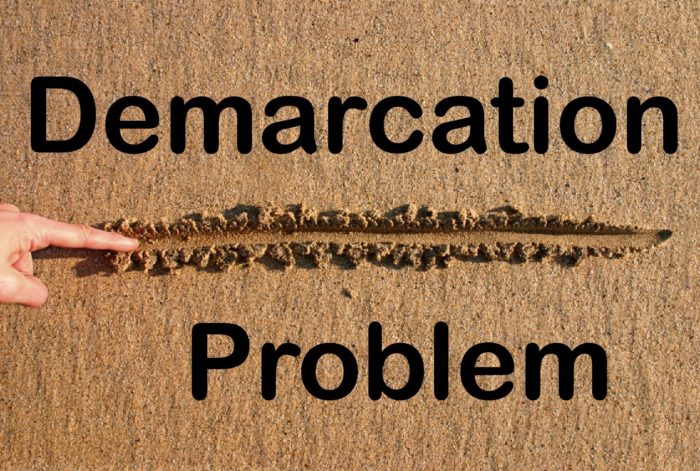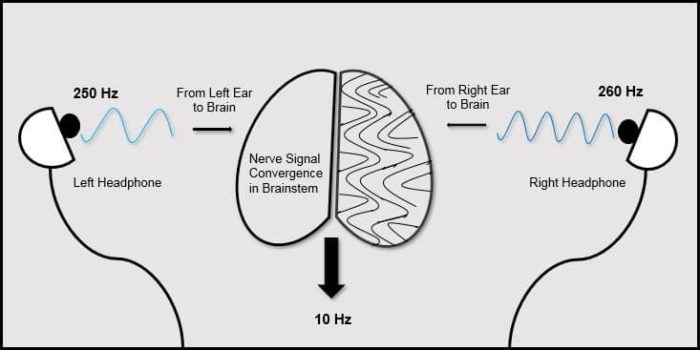 There is plenty of fraud and corruption in the world, even in the halls of science. No one has a monopoly. But there are some hot spots that deserve specific attention. Recently significant concerns have been raised about the published research of Xuetao Cao, a Chinese Immunologist. This story is newsworthy because Cao is not just any immunologist – he is also the President of Nankai University, in Tianjin, China. But more to the point – he is the Chairman of research integrity in all Chinese research. When your head of research integrity is exposed for massive scientific fraud, you have a problem.
There is plenty of fraud and corruption in the world, even in the halls of science. No one has a monopoly. But there are some hot spots that deserve specific attention. Recently significant concerns have been raised about the published research of Xuetao Cao, a Chinese Immunologist. This story is newsworthy because Cao is not just any immunologist – he is also the President of Nankai University, in Tianjin, China. But more to the point – he is the Chairman of research integrity in all Chinese research. When your head of research integrity is exposed for massive scientific fraud, you have a problem.
Here is a thorough treatment of the evidence for fraud, which covers over 50 published papers. The fabrication of data was noticed because much of it has to do with pictures, of either western blots, gels, flow cytometry images, and microscopy images. There appears to be two general types of fabrication going on. One type results from sending the same sample multiple times through analysis, but treating the data as if it came from different samples. In this case the resulting imaging will be strikingly similar in pattern, but not identical. The second type of fabrication is to simply photoshop copy and paste images.
Either way, the resulting data fabrication is undeniable once it is noticed. The images are simply too similar (and again, sometimes identical) to be genuine data. Once researchers started pouring through Cao’s other papers, the extensive fraud became obvious. When confronted with this revelation online, Cao responded by first standing behind his work, then stating:
Nevertheless, there is no excuse for any lapse in supervision or laboratory leadership and the concerns you raised serve as a fresh reminder to me just how important my role and responsibility are as mentor, supervisor, and lab leader; and how I might have fallen short.
Wow – you see what he just did there? He simultaneously apologized and took responsibility, but only for failure of supervision. So essentially he is throwing all of the people who work for him under the bus. Either way, however, this is really bad for Cao. Even in the best case scenario, all the fraud was perpetrated by others under his watch. Keep in mind, he is in charge of research integrity for all of China, but apparently can’t keep an eye on his own lab. There are certainly famous cases where research assistants were the ones perpetrating the fraud. Another immunologist, Jacques Benveniste, claimed to have evidence of immunological activity from high “homeopathic” dilutions. An investigation found his results to be highly unreliable at least, and likely straight-up fraudulent (although may have been do to really sloppy techniques and bias). But it also appears that the positive results all seemed to come from one lab assistant, Elizabeth Davenas – certainly a disturbing pattern.
Perhaps a similar pattern will emerge from Cao’s lab, but it seems unlikely that an overzealous assistant can be responsible for data fabrication in 50 published studies. This is clearly a systemic problem.
Continue Reading »
 Would you be willing to pay $35 for a sticker you put on the back of your phone? What if it had “magical” properties that protect you from something that is not harmful in the first place? That is the idea (it seems to me) behind the SmartDot product, made in the UK. On Amazon they claim: “smartDOT Radiation Protection is a low powered magnet programmed with an intelligent combination of natural harmonizing frequencies which reduces harmful EMF radiation emitted by your wireless devices and alleviate symptoms of electro-stress.”
Would you be willing to pay $35 for a sticker you put on the back of your phone? What if it had “magical” properties that protect you from something that is not harmful in the first place? That is the idea (it seems to me) behind the SmartDot product, made in the UK. On Amazon they claim: “smartDOT Radiation Protection is a low powered magnet programmed with an intelligent combination of natural harmonizing frequencies which reduces harmful EMF radiation emitted by your wireless devices and alleviate symptoms of electro-stress.”
 In a
In a  In the movie Interstellar, which takes place in a dystopian future where the Earth is challenged by progressive crop failures, children are taught in school that the US never went to the Moon, that it was all a hoax. This is a great thought experiment – could a myth, even a conspiracy theory, rise to the level of accepted knowledge? In the context of religion the answer is, absolutely. We have seen this happen in recent history, such as with Scientology, and going back even a little further with Mormonism and Christian Science. But what is the extent of the potential contexts in which a rewriting of history within a culture can occur? Or, we can frame the question as – are there any limits to such rewriting of history?
In the movie Interstellar, which takes place in a dystopian future where the Earth is challenged by progressive crop failures, children are taught in school that the US never went to the Moon, that it was all a hoax. This is a great thought experiment – could a myth, even a conspiracy theory, rise to the level of accepted knowledge? In the context of religion the answer is, absolutely. We have seen this happen in recent history, such as with Scientology, and going back even a little further with Mormonism and Christian Science. But what is the extent of the potential contexts in which a rewriting of history within a culture can occur? Or, we can frame the question as – are there any limits to such rewriting of history? Pangolin’s are adorable and weird animals.
Pangolin’s are adorable and weird animals. The World Health Organization (WHO) is one of those entities that are so essential if it didn’t exist it would need to be invented. But at the same time, it is a frustratingly flawed institution. Some of those flaws are being highlighted during the Covid-19 pandemic. But the WHO is not alone in this – Covid-19 is an extreme stress on the system, and it is revealing multiple weaknesses. The big lesson I hope at least a majority of people take from this entire episode is that we actually need continuity of competent government.
The World Health Organization (WHO) is one of those entities that are so essential if it didn’t exist it would need to be invented. But at the same time, it is a frustratingly flawed institution. Some of those flaws are being highlighted during the Covid-19 pandemic. But the WHO is not alone in this – Covid-19 is an extreme stress on the system, and it is revealing multiple weaknesses. The big lesson I hope at least a majority of people take from this entire episode is that we actually need continuity of competent government. As a skeptical science communicator I am constantly walking the line between hope and cynicism. On the one hand, I very much take to heart Carl Sagan’s approach to science – focusing on the absolute wonder of the universe, and celebrating the curiosity and ingenuity of humanity. We have peered into the past, walked on the moon, and decoded many of the secrets of life. Science is a powerful tool that has transformed the world more in the last few centuries than in tens of thousands of years beforehand. And yet, humanity still struggles with the demons of our evolutionary history. We are tribal, superstitious, and capable of surrendering our critical thinking to a charismatic leader.
As a skeptical science communicator I am constantly walking the line between hope and cynicism. On the one hand, I very much take to heart Carl Sagan’s approach to science – focusing on the absolute wonder of the universe, and celebrating the curiosity and ingenuity of humanity. We have peered into the past, walked on the moon, and decoded many of the secrets of life. Science is a powerful tool that has transformed the world more in the last few centuries than in tens of thousands of years beforehand. And yet, humanity still struggles with the demons of our evolutionary history. We are tribal, superstitious, and capable of surrendering our critical thinking to a charismatic leader. Binaural beats are an auditory illusion created by listening to two tones of slightly different frequency. This produces a type of feedback effect in the brain that produces a third illusory sound that has a pulsating quality, hence binaural beats. All perceptual illusions are fascinating, at least to neuroscientists, because they are clues to how the brain processes sensory information. What we ultimately perceive is the result of a complex constructive process (not passive recording) and understanding the process offers insight into the strengths and weaknesses of human perception.
Binaural beats are an auditory illusion created by listening to two tones of slightly different frequency. This produces a type of feedback effect in the brain that produces a third illusory sound that has a pulsating quality, hence binaural beats. All perceptual illusions are fascinating, at least to neuroscientists, because they are clues to how the brain processes sensory information. What we ultimately perceive is the result of a complex constructive process (not passive recording) and understanding the process offers insight into the strengths and weaknesses of human perception. This has to be the
This has to be the  There is plenty of fraud and corruption in the world, even in the halls of science. No one has a monopoly. But there are some hot spots that deserve specific attention. Recently significant concerns have been raised about the published research of Xuetao Cao, a Chinese Immunologist. This story is newsworthy because Cao is not just any immunologist – he is also the President of Nankai University, in Tianjin, China. But more to the point – he is the Chairman of research integrity in all Chinese research. When your head of research integrity is exposed for massive scientific fraud, you have a problem.
There is plenty of fraud and corruption in the world, even in the halls of science. No one has a monopoly. But there are some hot spots that deserve specific attention. Recently significant concerns have been raised about the published research of Xuetao Cao, a Chinese Immunologist. This story is newsworthy because Cao is not just any immunologist – he is also the President of Nankai University, in Tianjin, China. But more to the point – he is the Chairman of research integrity in all Chinese research. When your head of research integrity is exposed for massive scientific fraud, you have a problem. It’s nice to get the occasional good news, to know that there are other people out there who respect facts and science. The Spanish government announced that it plans to
It’s nice to get the occasional good news, to know that there are other people out there who respect facts and science. The Spanish government announced that it plans to 




